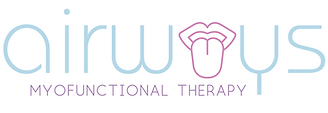Breaking the Habit: Prolonged Sippy Cup Use and the Role of Myofunctional Therapy
- Dec 14, 2023
- 2 min read
Sippy cups are a common item in many households, serving as a transitional tool for toddlers as they transition from bottles or breastfeeding to drinking from regular cups. While sippy cups can be a helpful aid during this transition, prolonged use can lead to oral and facial muscle issues and negatively impact a child's overall development. In this blog post, we'll explore the potential consequences of prolonged sippy cup use and discuss how myofunctional therapy can play a pivotal role in addressing these concerns.
The Appeal of Sippy Cups
Sippy cups are designed with features that make them appealing for both parents and young children. They typically have spill-proof valves, easy-to-grip handles, and are convenient for on-the-go use. While sippy cups are helpful for reducing spills, they can become problematic when they're used for an extended period.

Consequences of Prolonged Sippy Cup Use
Oral Motor Development: Prolonged use of sippy cups can hinder the development of essential oral motor skills. Sucking on the spout or straw of a sippy cup may encourage a less mature sucking pattern, potentially leading to issues like weak tongue muscles or tongue thrust.
Dental Problems: Sippy cups that contain sugary drinks or milk can lead to dental issues like tooth decay and cavities, especially if the child sips throughout the day or during naps and bedtime.
Speech Difficulties: Improper tongue and lip movements during sippy cup use can contribute to speech problems, including articulation issues and lisping.
Breathing Challenges: Sippy cup use can sometimes encourage mouth breathing rather than nasal breathing. Mouth breathing can lead to a range of issues, including sleep disturbances and impaired facial development.
Orthodontic Concerns: Prolonged sippy cup use can negatively affect dental alignment, leading to orthodontic issues such as malocclusions or crooked teeth.

Myofunctional Therapy: An Effective Solution
Myofunctional therapy is a therapeutic approach that focuses on correcting the functions of the oral and facial muscles. It can be an effective solution for addressing the problems associated with prolonged sippy cup use. Here's how myofunctional therapy can help:
Muscle Training: Myofunctional therapy includes exercises that help strengthen the tongue, lips, and facial muscles, promoting proper oral motor development and function.
Behavioral Correction: Myofunctional therapists work with children to correct harmful oral habits that may have developed due to sippy cup use. This includes tongue thrust, mouth breathing, and improper swallowing patterns.
Speech Enhancement: Myofunctional therapy can help children improve their speech by addressing any articulation issues that may have arisen due to prolonged sippy cup use.
Breathing and Sleep: By promoting nasal breathing and eliminating mouth breathing, myofunctional therapy can help children breathe more easily, reducing the risk of sleep disturbances and associated health problems.
Orthodontic Support: Myofunctional therapy can complement orthodontic treatments by ensuring that the muscles and oral habits do not interfere with orthodontic progress.
Prolonged sippy cup use can lead to a range of oral and facial development issues, but the good news is that myofunctional therapy offers a path to correction and improved overall health. If you're concerned about the consequences of sippy cup use on your child's development, consider consulting a myofunctional therapist. Through a tailored therapy plan, your child can overcome the challenges associated with prolonged sippy cup use and enjoy healthy oral development and a brighter future.



.png)


